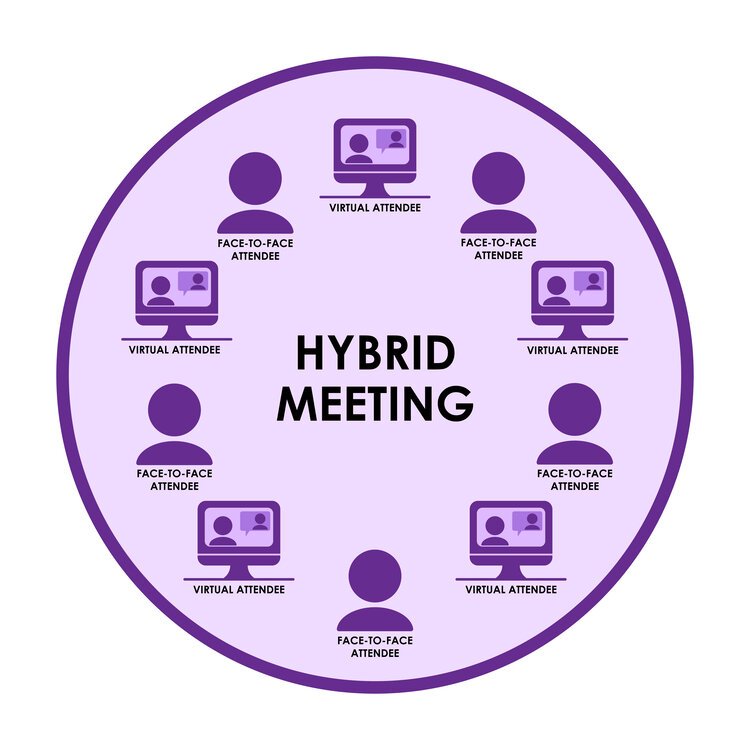Virtual events are here to stay
Editor’s note: This blog was originally published on May 6, 2021, and has been updated for accuracy and relevancy.
5 Simple business Approaches to events
We’re a little over two years into the global pandemic that is COVID-19. In-person events are back, just in case you missed it.
However, they probably won’t completely replace virtual events; they’ll exist alongside them.
Virtual events were already becoming popular before the pandemic. Ever heard of the Verzuz battles?
Take the success of virtual events as a sign that we’re not looking at a temporary phenomenon.
Highlighted below are five things to consider as your business approaches events beyond COVID-19.
1) Expand Your event Audience
Our ways of working and living are changing. We’re experiencing a profound shift toward a stay-at-home economy. As Vimeo points out, 72% of marketers and professionals expect to attend virtual or online events.
Hybrid and virtual events make it easier and more cost-effective to reach more people. Cast a wider net for your audience. Add a live stream for those who prefer to join your event from the comfort of their homes.
Eliminate the hassles of travel, time, and money that often prevent many interested participants from attending your events.
2) Track your virtual event data
Hosting an all-virtual webinar or hybrid meeting gives you the opportunity to track, capture, and make the most of attendee data in ways that would be difficult to achieve with in-person events. Virtual platforms offer deep data analytics that you can use to determine user interests and behavior during your events.
Capture data when attendees do the following:
Log in to your event
Chat with other attendees
Make connections
View your event
Share your event on different platforms
Capturing leads becomes easier when you host a virtual event. Use the analytics to determine which attendees to follow up with down the road.
3) maximize your roi with a virtual event
With virtual platforms, you can make your content available on-demand, pre-record content, and store content. Give your audiences the opportunity to playback and enjoy the sessions over and over again.
Speakers can also use virtual platforms to push additional content out during or after the event. These benefits create the opportunity to continue to drive ROI and make more money from your event.
As SOCIO points out in the chart below, measuring success with goals will feed directly into your key performance indicator (KPIs).
You can keep providing additional content to sustain the enthusiasm of your audiences, thereby turning attendees into brand loyalists. With virtual events, your content doesn't end with your event. It has the potential to continuously exist and grow alongside your audience.
4) create opportunities for small businesses
Just because your business has a smaller marketing budget doesn’t mean you can’t produce a quality event. A reported 80% of marketers reached a larger audience in 2020 by hosting virtual events.
Your small business isn’t limited by travel costs and accommodations, either. You can get speakers and facilitators from anywhere around the globe to feature in your virtual event.
5) reduce your carbon footprint
Did you know that going carless for a year could save nearly 2.6 tons of carbon dioxide? We’re not asking you to sell your car. But one of the ways to cut down on carbon is by reducing your amount of travel!
Virtual events are eco-friendly events, so thousands of people can attend a global event without having to travel any distance.
ensure your NEXT event is a success
The pandemic is constantly making the world, especially businesses, reconsider the way it looks at events. The next time you get ready to host an event, virtual or in-person, here are three quick thoughts to consider:
Think strategically
You’ve probably incorporated virtual events into your broader communications approach at this point. Now it’s time to take that thinking to the next level and ask yourself a few key questions:
How might virtual events help you meet your revenue targets for 2022 and beyond?
How can hosting virtual events help you attract more high-value shareholders?
Can your virtual event help you build relationships that will enrich your market capitalization?
Free yourself of the “webinar mentality”
Having a webinar mentality means that you associate a virtual event with nothing more than a simple hour of one-way content delivery. You jump on Zoom or another video platform and follow with an “engaging” Q&A session.
Consider immersive ways to build engagement with video, live streaming, polling, and other tools that can help keep people glued to their screens.
Keep PEOPLE at the center of the experience
An event is more than just the technology you use. You might feel like you’re delivering an event to an anonymous crowd online. But there are people behind those screens craving a human connection.
Use tools such as polling and Q&A to engage with them. Learn how to address a screen in a warm, inviting way, even when you and your audience cannot be in the same room.
Conclusion
Hybrid events have introduced a whole new way in how our industry will work in the future. Virtual and in-person events create a number of new benefits. They also offer cost-effective ways to communicate and connect with a larger audience.
This isn't the end of face-to-face events (thank goodness — we can’t wait to see our friends!).
But virtual events look like they’re here to stay, and continue to offer a terrific alternative when meeting in person isn't possible.





